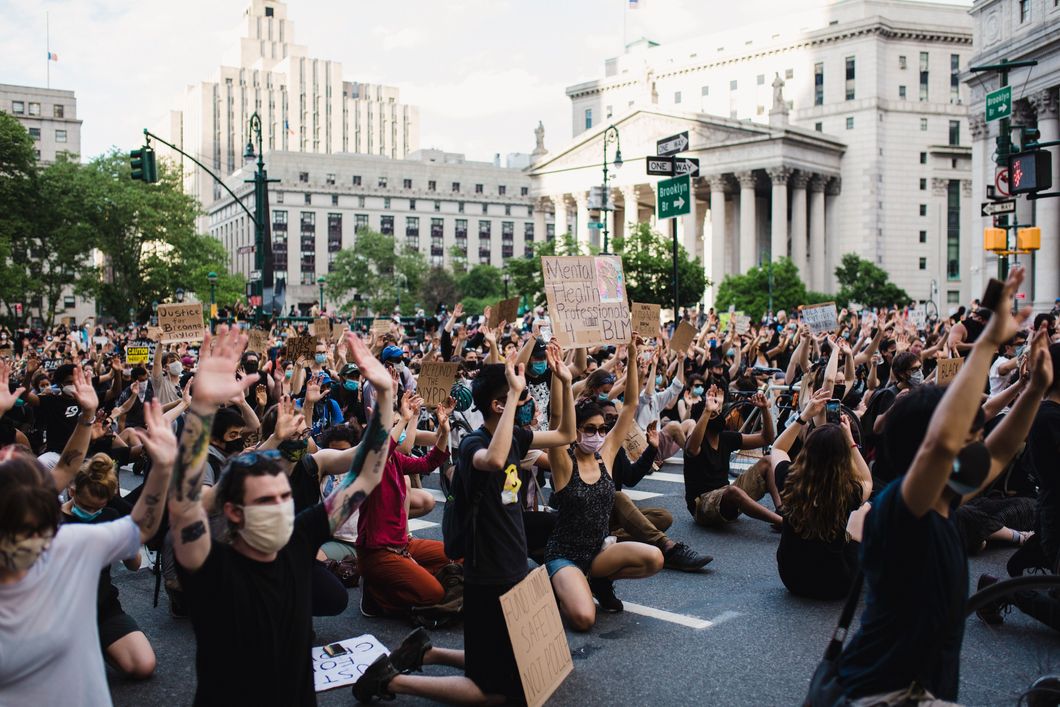The Supreme Court created qualified immunity in 1967, "describing it as a modest exception for public officials who had acted in 'good faith' and believed their conduct was authorized by law."
Harlow v. Fitzgerald expanded the protections offered by qualified immunity. Harlow was a White House aide during the Nixon administration and Fitzgerald was a former Air Force contractor, who claimed that he was fired for giving a whistle-blowing testimony to Congress.
The Supreme Court opinion was in favor of Harlow, expanding qualified immunity from an exception that protected public officials who had acted in good faith to an extensive shield for public officials that had purposefully violated constitutional rights.
This change requires that those who have had their rights violated by public officials must prove that their rights were "clearly established." The Court says that this means the victim must use a previously decided case with similar circumstances as precedents, making a victim winning a suit against police close to impossible.
Application of Qualified Immunity
In 2004, Malaika Brookes was pulled over for speeding while she was driving her son to school. The officers that pulled her over issued her a speeding ticket, which Malaika refused to sign, later saying that she was under the impression that signing would be an admission of guilt when she didn't believe she had done anything wrong.
A police sergeant arrived and told Malaika that if she did not exit her vehicle, force would be applied. The officers demonstrated a taser shock, and Malaika informed them that she was pregnant. She was then tased three times within a minute.
Malaika sued for emotional and physical scars, leading to a split decision issued by a San Francisco federal appeals court, "finding excessive force was used, but saying the officers could not be sued because 'it was not sufficiently clear' in the law at the time that what they were doing was a constitutional violation."
In 2014, Melanie Kelsay was at the pool with her children and a friend. While there, her friend came up behind her and pretended he was going to throw her into the pool. Onlookers interpreted this as a domestic assault and called the police.
When the group left the pool, officers were waiting for them. Melanie repeatedly attempted to tell the police that no assault had occurred. The police arrested her friend and Melanie was arguing with Officer Ernst when she saw that her daughter was having an argument with a bystander.
Melanie moved to check on her daughter and Ernst grabbed her arm. He released her and she told him she needed to check on her daughter. She moved toward her daughter again and Ernst ran up behind her, grabbing her and slamming her into the ground. This knocked Melanie unconscious and broke her collarbone. She was then arrested and handcuffed, despite complaints of pain.
Melanie sued Officer Ernst and an appellate court decided that Ernst was covered by qualified immunity, "holding that it was not 'clearly established' that using a takedown maneuver on a suspect who walks away was unlawful -- simply because there was no prior case with sufficiently similar facts."
Qualified immunity has been developed by the courts into a shield that protects public officials from being sued for their violations of constitutional rights. This shield allows police to repeatedly tase a pregnant woman, because it was not clear to them that the action was unconstitutional. It allows police to cause significant bodily harm to an unarmed woman trying to check on her daughter, because there was no prior case with similar facts.
Qualified immunity allows police and other pubic officials to get away with any crime against civilians that they haven't been punished for in the past.
What Can You Do?
If you want to take action to encourage the end of qualified immunity, you can sign petitions like this one and this one.
If you want to go further, you can find your representative here and tell them that you support the Ending Qualified Immunity Act through an email or call.





 Energetic dance performance under the spotlight.
Energetic dance performance under the spotlight. Taylor Swift in a purple coat, captivating the crowd on stage.
Taylor Swift in a purple coat, captivating the crowd on stage. Taylor Swift shines on stage in a sparkling outfit and boots.
Taylor Swift shines on stage in a sparkling outfit and boots. Taylor Swift and Phoebe Bridgers sharing a joyful duet on stage.
Taylor Swift and Phoebe Bridgers sharing a joyful duet on stage.












